A different kind of flue season
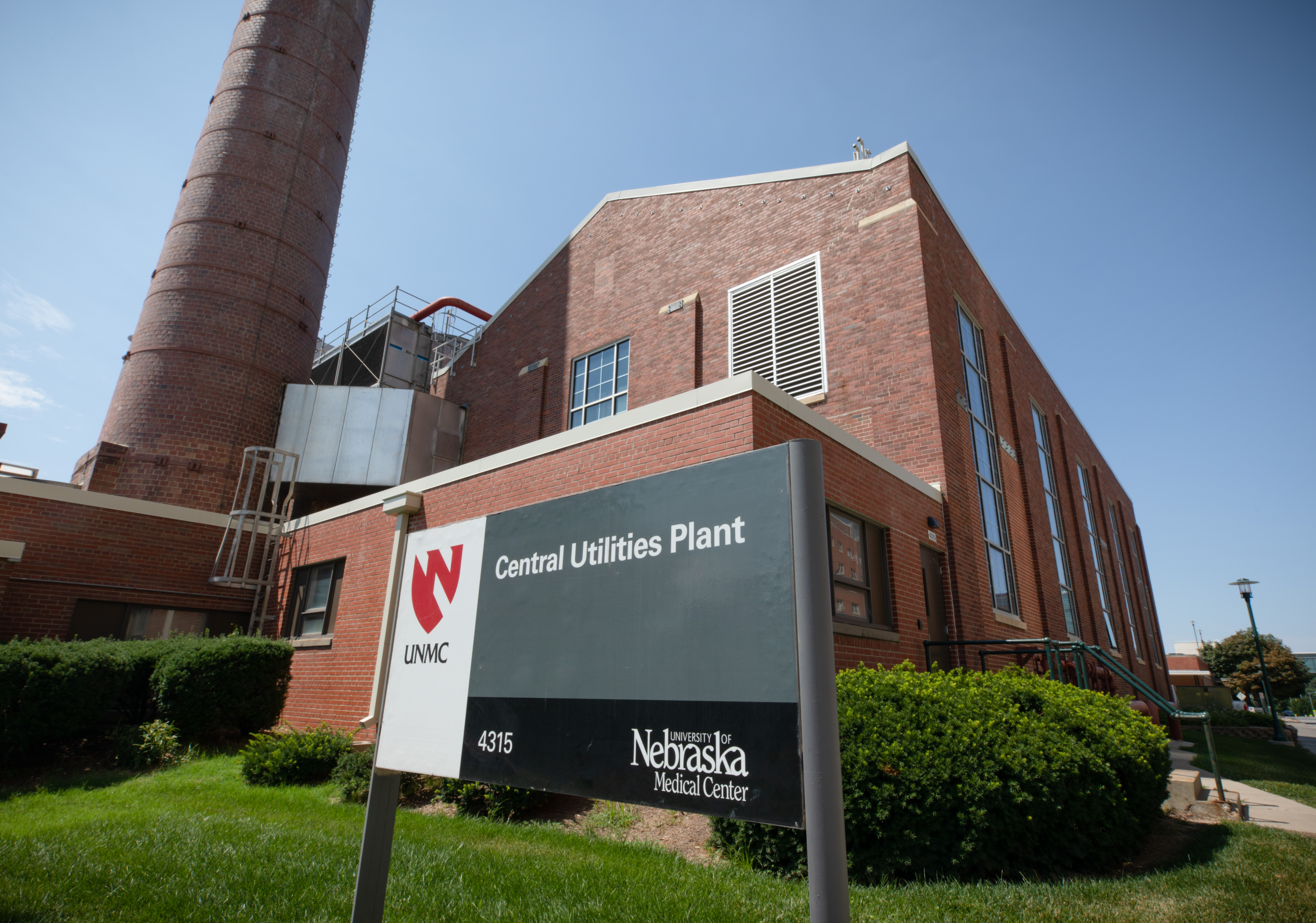
By Melanie Stewart
A new piece of equipment is poised to capture energy that previously would’ve been wasted — enough of it to heat three huge buildings. To explain how it works, a little lesson in how the utilities work at the UNMC/Nebraska Medical Center campus.
The Central Utility Plant (CUP) is the main hub for utilities (electricity, natural gas) coming into campus. From there electricity is distributed to buildings and the CUP cools buildings by producing chilled water, heats buildings by creating steam, and produces hot water. These processes use electricity and/or natural gas.
The “smoke” stack is equivalent to the vent on virtually all homes, it’s where the exhaust from burning natural gas leaves the building and where many of our greenhouse gas emissions come from. Just like houses, exhaust tends to be more visible when it’s cold out, as the temperature differential is greater. We are always producing hot water and heat (that’s the seemingly backwards part of energy curtailment) so we are always burning natural gas. Though the amount of exhaust coming out of our stack can vary based on time of day/campus activities, there is always exhaust.
A lot of what is exhausted is heat—but getting rid of heat while working to produce it, isn’t the most efficient process. That’s where the flue gas economizer comes in. Flue like a chimney flue, not the virus. The flue gas economizer is not your everyday piece of equipment. Operated by the CUP technicians, it pulls heat that would be exhausted out of the stack, and allows it to be used to as heat for buildings.
So how efficient is it?
When it’s cold outside and running at full capacity, it is capable of providing enough heat for the Lauritzen Outpatient Center, UNMC Center for Drug Discovery and Lozier Center for Pharmacy Science and Education, AND the new Dr. Edwin G. & Dorothy Balbach Davis Global Center.
You read that correctly: all three buildings can be completely heated with energy that would have been previously wasted. Pretty cool…or uh, hot, isn’t it?
Adam Poppleton, utilities operations supervisor said, “This equipment demonstrates not only our drive to reduce emissions, improve air quality, and positively impact health, but also to use innovative technology.”
In a one year time period the campus added more than a million square feet of built space (which doesn’t count the Davis Global Center) and that means energy use goes up and so do emissions. While the flue gas economizer doesn’t directly reduce emissions, it reduced the amount of increase; assisting with our goal to be Net Zero Building Emissions by 2030, and saving money on both capital equipment and utilities.
International magazine highlights campus sustainability success
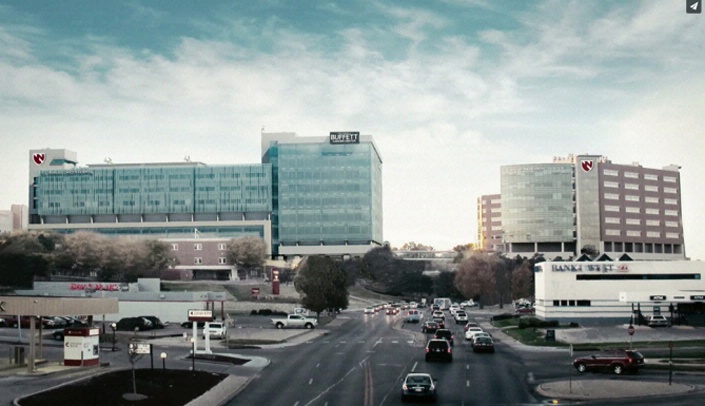
Sustainable Business Magazine may not be a magazine on your coffee table, but it’s an international publication with almost 120,000 monthly readers and more than 10.5k twitter followers. It’s the “only industry publication focusing solely on sustainable business development”.
Sustainable Business Magazine:
- Spreads awareness of the values of sustainability.
- Informs the exciting ways in which institutions meet challenges and champion corporate social responsibility.
- Features associations, universities, and companies in order to detail the ways they promote sustainable development.
- Produce content based around economic sustainability, environmental sustainability, and social sustainability.
When the editor reached out to talk about our efforts, we were a little surprised they had heard of UNMC and Nebraska Medicine. We were excited to be the top bill on the cover, first article, and the only American organization featured.
“It’s an acknowledgement that we are working to lead the world,” said sustainability manager Melanie Stewart, “while some of our efforts fly under the radar, what we have accomplished in a relatively short amount of time is impressive—especially for a research and healthcare institution. Our work is energy intensive, critical, and never stops, which adds to the challenges but can also amplify the impacts.”
The title of the article, “A Healthy Future For All” comes directly from our mission. It demonstrates how climate change, waste, and pollution negatively affect our health and explains how our efforts are making changes that can improve the health of many and save lives.
“While we, as an organization, can accomplish great things, we do that with our people,” Stewart says. “It’s a good reminder how little actions can really add up and how an individual’s voice can make a difference. I’m proud of everything we have achieved thus far, but am particularly proud of the work the LiveGreen Ambassadors have done and look forward to what’s next!”
You can read the article online here.
Sustainability Engagement Survey Winners Announced

Over the years, the Med Center has improved our environmental footprint and impact through waste reduction programs, reduced energy use, solar panel installation, and the TravelSmart program, just to name a few of the many efforts we have implemented.
One of the most important ways to achieve our sustainability goals is through engagement in sustainable practices. Every other year we conduct an employee survey to measure your awareness of, and participation in, sustainability efforts at the Med Center. This allows us to track our improvement and progress over time.
In December, all UNMC, Nebraska Medicine, & Clarkson College students, faculty, and colleagues were asked to provide feedback in this survey. Thousands of you answered and we are now analyzing those results. The survey was anonymous, but participants also had the option to sign up for prizes by putting their name in a separate form. We feel transparency is important and will share the results with you very soon but we are happy to announce the winners of the $25 Visa gift cards and the reusable utensil sets.
Gift cards:
Vicki Bracht
Katie Darling
Melissa Davison
Aida Delatorre
Kay Gale
Taylor King
Erin Porter
Rhea Vinson
Utensil sets:
Todd Bishop
Tera Brown
Pam Carmines
Martin Conda-Sheridan
Jodi Goldschmidt
Trevor Grace
Rashelle Hoffman
Bader Huwaimel
Joanne Johnson
Sean Levkoff
Joe Menousek
Jayne Milner
Elora Newton
Opeoluwa Oyewole
Carla Ramirez-Holcomb
Jamie Shaw
Robin Taylor
Megan Vetrovsky
Dub Vogt
Lauren Zent
Those who registered to win had their name placed in a spreadsheet, with each name assigned a row. Impartial witnesses used a random number generator which was then matched to the corresponding rows to determine the winners.
While not everyone could win, we appreciate the time that everyone took to provide their opinions and feedback. We look forward to reporting that data and using those suggestions to shape future sustainability initiatives.
If you have any questions, comments, or concerns regarding the survey, please email LiveGreen@unmc.edu. Information about sustainability efforts on campus can be found at LiveGreenNebraska.com.
A Call To Action
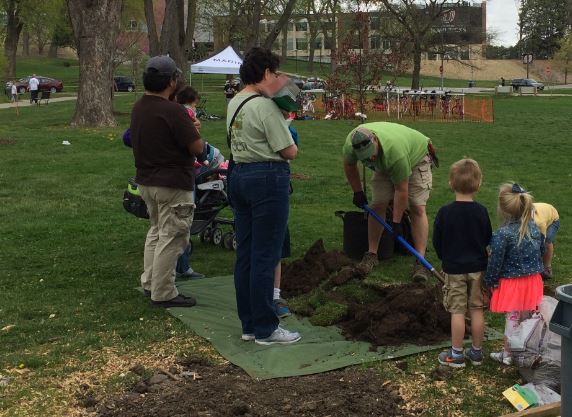
By Melanie Stewart
Even if you don’t like resolutions, it still feels like January 1 is a time to start something new. If that applies to you, the office of sustainability recommends reducing your impact, in any way possible.
The possibilities seem endless and it can be overwhelming…and a little depressing: climate change tipping points are coming faster than predicted and taking a serious toll on human health, species are going extinct and creating a domino effect for other species-including humans, and natural disasters seem to be an everyday occurrence.
Facing a problem of that size makes it hard to know where to start, and can lead to feelings of guilt. It’s also natural to think, “how is my little action of ___ going to help with a problem so big”? It’s stressful, and may seem hopeless—but it’s not.
Yes, the problems are big, and far reaching. Yes, countries and large organizations can have a big impact. But your individual actions count. They aren’t little or insignificant, and they are necessary. Not only do individual actions add up, they also lead to savings you don’t see–like the fuel used in the transportation of goods or the water used in manufacturing. Your actions can influence other people’s behavior which multiplies that effect and as public opinion changes, individuals end up influencing those big organizations and countries.
Need proof? UNMC and Nebraska Medicine started implementing sustainable strategies because students and colleagues said something. Now we’ve reduced enough energy to power a sizable town for a year, saved enough water to fill hundreds of Olympic-sized swimming pools, and in turn are influencing others. Our TravelSmart program is being replicated across the country, our energy strategies are being sought, and our actions are leading to even more change.
Back to the resolution. As you hear more about these issues, don’t get analysis paralysis. Do something—do anything. Pick an issue or topic that interests you, and make a change. Share your motivations and actions with your family (kids are great at holding adults accountable!), note the impact, celebrate your successes, and then pick a new action. Active participation will fight the hopelessness. You’ll likely save money (and who doesn’t like that?!?), improve your health, and improve the health of our community…and beyond.
Your action can change the world.
Jevon’s Paradox

A chill is in the air, peppermint is infiltrating our beverages, and holiday lights are on gutters, trees, and yards. Many of us remember, not so fondly, searching for a burnt out incandescent bulb that single-handedly brought down the entirety of a holiday light display. Today’s LED light strands not only save us time and frustration, but they are more energy efficient as well. Throughout our homes and businesses, incandescent bulbs have given way to LED and CFL bulbs, which individually use a fraction of the energy of a traditional incandescent and last longer. Despite these benefits, some experts doubt we will see any reduction in energy use over the long term.
How can this be?
During the industrial revolution, a British economist named William Stanley Jevons predicted that increased efficiencies in burning coal would not lead to less coal consumption, but more. Known as Jevon’s paradox, the basic premise is that technological efficiencies lead to lower costs, and these lower costs lead to higher consumption.
Take vehicle fuel efficiency as an example. A driver with a more fuel efficient car might choose to drive more because they spend less per mile. In addition to the gas consumed, increased mileage leads to increased vehicle wear, which in turn increases emissions from manufacturing of new tires and car parts. Longer road trips might also lead to more hotel stays and meals on the road, which requires more energy inputs as well. In the end, a fuel efficient car can lead to greater emissions based on driver behavior.
What can you do?
Technological efficiencies can provide significant cost and time-saving benefits but only if we truly take advantage of them: hang the same number of holiday lights as before and watch the smaller bill roll in because they are LEDs. Increase your savings by turning them off at a time when no one will see them (timers are inexpensive and you don’t have to remember or go out in the cold) and continue to invest in energy efficiencies.
A great way to keep yourself accountable is to take a page out of the Med Center’s book; set goals for yourself! Try to decrease your energy usage 10% compared to last December, or find another measurable, achievable goal your household can reach. Fighting Jevon’s paradox is good for your wallet, the planet, and your health.
UNMC, Nebraska Medicine, TravelSmart receive award
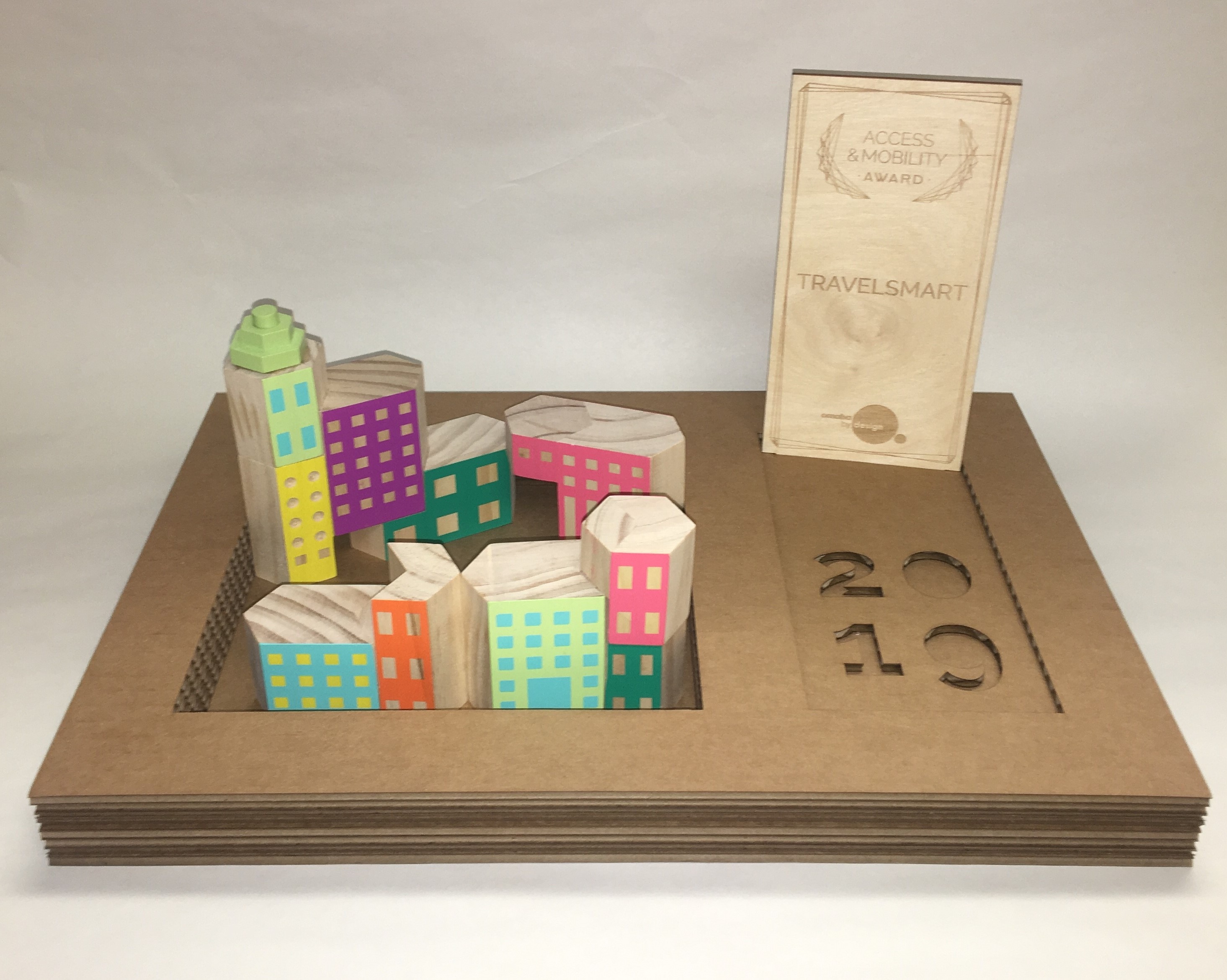
Omaha by Design leverages the best ideas in people-centered urban design, to the benefit of our communities’ shared quality of life, in support of a more vibrant, livable city for all. As part of their work to contribute to a thriving metro by collaborating, educating, advocating, and engaging, Omaha by Design has renewed the Laurels Awards, a community awards series, recognizing the best in people-centered urban design happening now across the Omaha metro.
This series of community awards is designed to recognize local achievements in three core areas – Access & Mobility, Environment & Open Space, Neighborhood Revitalization, and the Young Urbanist Award. In addition, Omaha by Design annually presents its highest honor, the Laurels Award, to recognize an individual, organization or business for significant contributions to great public spaces in the region.
Individuals and groups are nominated for the Laurels Awards by Omaha by Design staff and voted on by their Board of Directors.
UNMC and Nebraska Medicine received the Access and Mobility award for the TravelSmart program—only the 2nd group to receive this honor.
Omaha by Design Executive Director Scott Dobbe said, “We find it (TravelSmart) an innovative example of proactive leadership in simultaneously advancing workplace culture, institutional growth, and environmental stewardship. Keep up the good work!”
Wondering what makes TravelSmart so special? Check out these stats*:
- Currently more than 3,000 participants
- More than 60,000 bus rides in the last year (just for commuting)
- A minimum of 800 cars not coming to campus each day
- Reducing congestion
- Increasing safety
- Reducing emissions
- Improving health
- Better experience for patients and visitors
- Providing health benefits to participants, with several noting:
- Weight loss
- Reduction in medication (blood pressure, cholesterol)
- Reduction in stress
- Reducing a minimum of 29,000 single occupant vehicle travel miles per week in Metro area
- 5 Million miles per year, and all associated emissions
- Cost avoiding a new parking garage, at least $30 million to build
*all conservatively calculated using provided data, not estimates or extrapolations
Interested in saving money, using time better, and/or improving your health? Email TravelSmart for assistance in finding a bus route or with any questions you may have, we are happy to help.
What’s your fashion footprint?
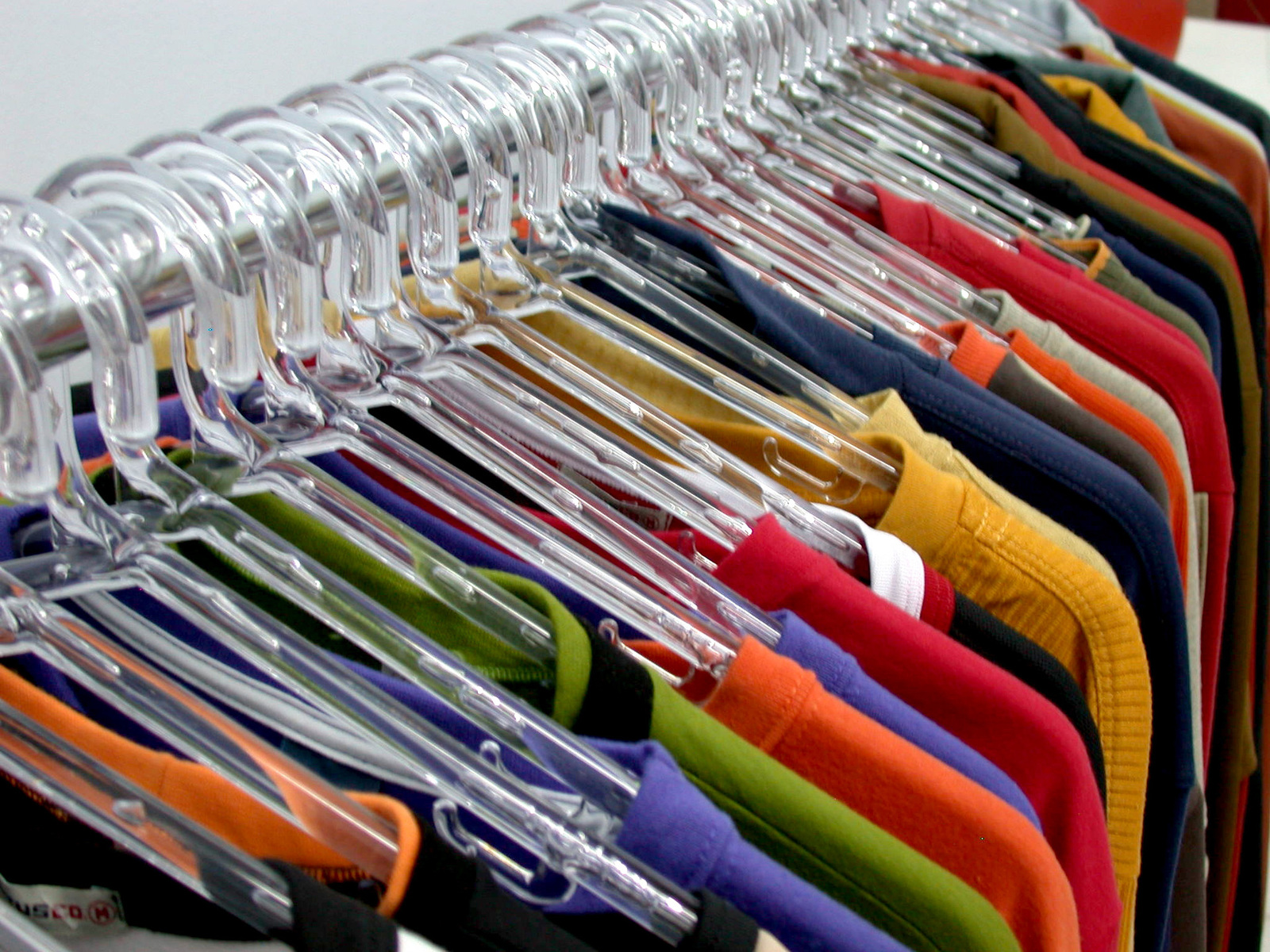
Being fashionable can come at a cost to your wallet and the environment, but it doesn’t have to.
by Tina Spencer, sustainability coordinator
According to recent studies, the fashion industry is the second most pollutive industry in the world, second only to oil, and it still contributes more to the world’s total carbon footprint than air travel, a staggering 10% to the aviation industry’s 2%.
Fast fashion adds to pollution and generates potential environmental and occupational hazards. High water usage, pollution from chemical treatments used in dyeing and garment preparation and the disposal of large amounts of unsold clothing through incineration or landfill deposits are hazardous to the environment.
Although some computers are used, most raw material production and manufacturing is still sewn by a person and is labor intensive. This results in manufactures seeking out low-wage environments for their factories where issues of industrial safety and exploitation of workers often arise.
There is also an increasing concern as microfibers from synthetic fabrics are polluting the earth’s waters through the process of laundering. The tiny microfibers are too small to be captured in filtration systems and end up entering our natural water systems. One study found that 35% of microplastics found in oceans come from the textile and clothing industry and majority of them were made of polyester, polyethylene, acrylic, and elastane. Eliminating synthetic materials used in clothing products can prevent harmful synthetics and microfibers from ending up in our natural environment.
None of that is good, but there’s hope!
Start by learning your fashion footprint. Regardless of your score, there are some simple ways to be more sustainable. Support sustainable fashion—clothing, shoes and accessories that are manufactured, marketed and used in the most sustainable manner possible, taking into account both environmental and socio-economic aspects:
- Reduce: Buy fewer items and the items you do buy should be high-quality materials that last longer. This eliminates the constant need to replace items and saves you money
- Reuse: keep those investment pieces longer instead of purchasing more
- Choose sustainable brands that are truly committed to the cause
- Take items that you no longer want or use to a consignment shop or donate pieces that are still wearable to organization and/or people that would appreciate what you’re eliminating
Nearly 95% of the clothes we throw away have the potential to be reworn, recycled or reused in some way. None of us can be perfect, but a lot of us making small changes can have a big impact.
photo credit: freeimages.com/odanjaeger
America Recycles Day
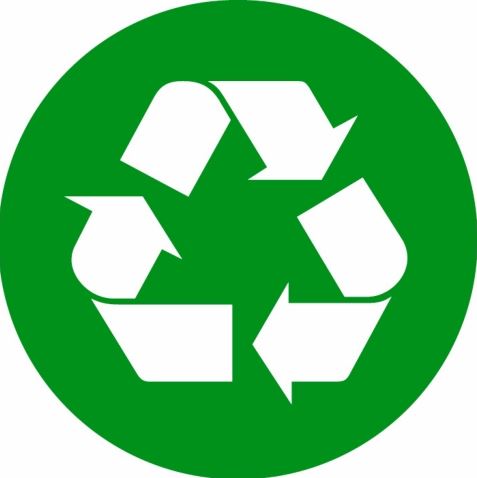
By Melanie Stewart
This Friday, November 15th, is America Recycles Day, a nationally recognized day dedicated to promoting recycling, and buying recycled products.
Not sure what to recycle on campus? Watch this short video to find out, or visit our webpage for on-campus information. Check out the Wasteline site for recycling information in and around Omaha. But don’t be a “wish-cycler” –that only creates more problems and increases waste.
Recycling is important and has huge impact on our planet and our economy. In order to complete the loop and make sure your recycling effort has value, buy products made of recycled content. When you purchase a product take a look at the label. If it contains the 3-arrow triangle (often referred to as the recycle symbol) it is recyclable. If that triangle is inside in a circle, that product is made from recycled content. The package should tell you the percentage of that item that was made from recycled materials, and if the materials are “post-consumer content.”
Recycled content product diverts materials from the landfill while protecting new or virgin resources, so make sure what you are buying has the highest percentage possible of recycled content.
This year, Keep Omaha Beautiful is challenging people to go further than recycling with their 24-Hour Zero Waste Challenge. Can you and your family think about waste differently by considering the source? By being aware of everything you consume, purchase, and use on a daily basis, you may recognize how many things go to the trash—and then find ways to reduce, reuse, or recycle.
Please note, going zero waste is hard (that’s why it’s a challenge!) so focus on progress, not perfection.
Need a little help to get started?
- Refuse—turn down any unnecessary waste—shopping bags, receipts, any item you don’t need.
- Reduce—Avoid disposable and packaged products, bring your own containers.
- Buy secondhand items—you’ll save something from the landfill and save your money.
- Recycle Right—both on campus and at home.
- Rot—Compost anything you can, in your backyard bin or consider signing up for a compost club.
Want to be rewarded for your efforts? Tag #24hrZeroWasteChallenge on social media, share a story or action, and Keep Omaha Beautiful may select you to win a zero waste kit.
Plastic, Recycling, and China
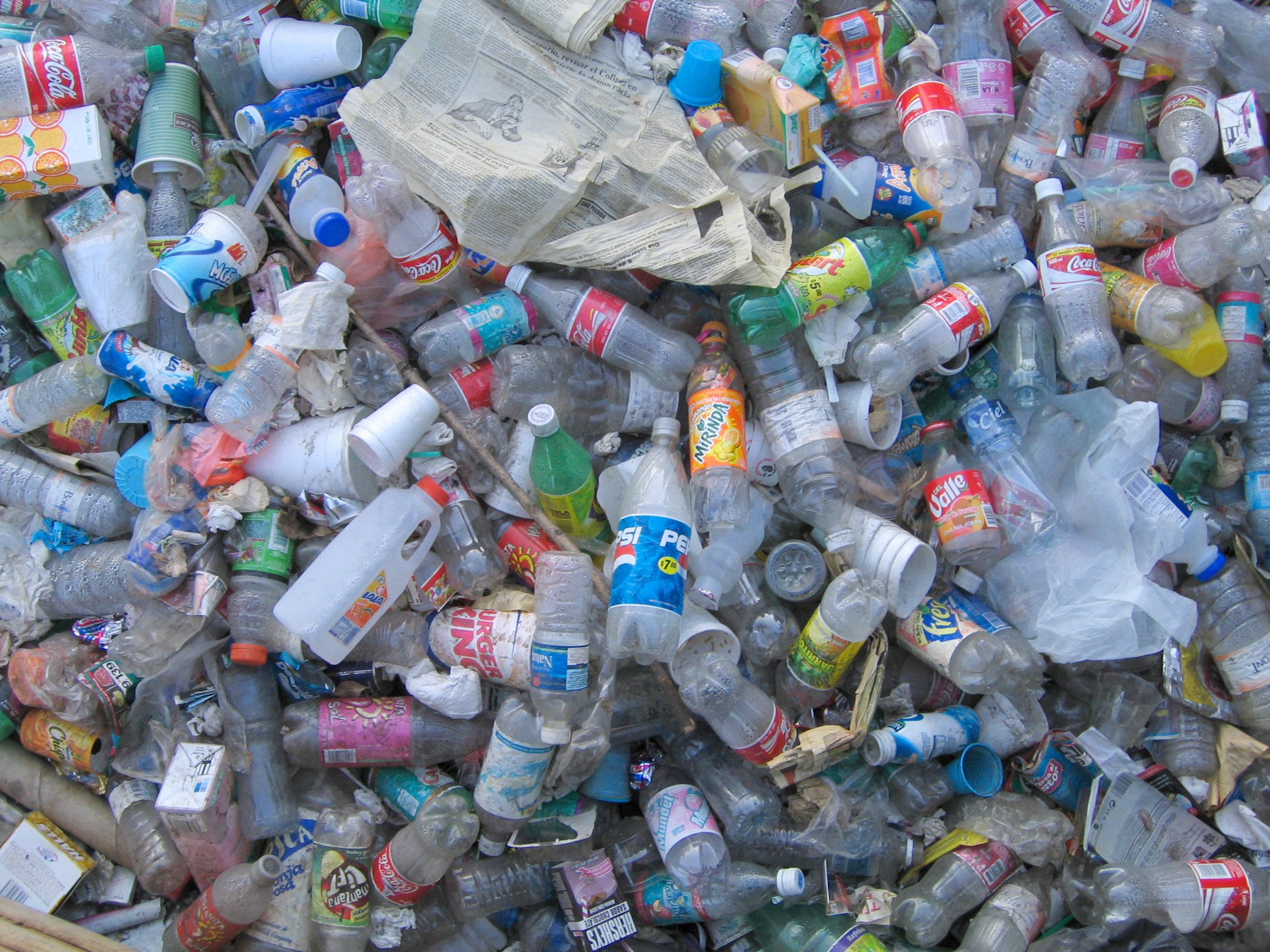
By Melanie Stewart
You’ve likely heard the stories in the news—China stopped accepting much of the world’s materials for recycling and this has sent shockwaves through the recycling market, prompting fears of recyclables being thrown in the trash.
This has prompted a lot of you to ask questions about the value of recycling, what this means for waste and the environment, and whether or not it’s even worth your time.
Here’s what you need to know:
Don’t forget that recycling is really the last option. If you are buying something with the idea that “it’s OK, I can recycle it” you may need to adjust your thinking. Instead of the 3 R’s (Reduce, Reuse, Recycle—but still notice the order) there are now 8 R’s:
- Rethink –the choices you make
- Refuse –single use plastics
- Reduce –consumption
- Reuse –everything you can
- Refurbish –old items instead of buying new
- Repair –before you replace
- Repurpose –items that you don’t need, reinvent!
- Recycle –when you can’t do any of the items above
Following these steps helps reduce all kinds of waste—pollution from extracting new materials out of the ground, emissions from transportation and manufacturing, and the resources used to dispose of items.
While this applies to all materials, plastic gets more attention, and for good reason. It produces a lot of pollution in the manufacturing process, never breaks down, recycles inefficiently, and worst of all, is exposing all of us to toxins that are threatening human health at a global scale. Plastic may have its place, but there are also lots of healthier alternatives. Making these changes are good for you/your family’s health by reducing your exposure and items pre-packaged in plastic are often the less healthy option. Think apple vs. bag of potato chips.
When all else fails, recycle—it still helps. But recycle right, and whatever you do, don’t wish-cycle! It’s easy to hope they’ll find a way for those items, but you are really just putting recyclable items at risk for the landfill. Glass and some metals are recycled regionally, and they can come back as the same product again and again.
What changes can you make to reduce your waste and get rid of some plastic? LiveGreen wants to know—and share them with others so they can make the same choice. Please leave a comment below or email LiveGreen@unmc.edu with a change you’ve made.
Going ‘Green’ for Pink
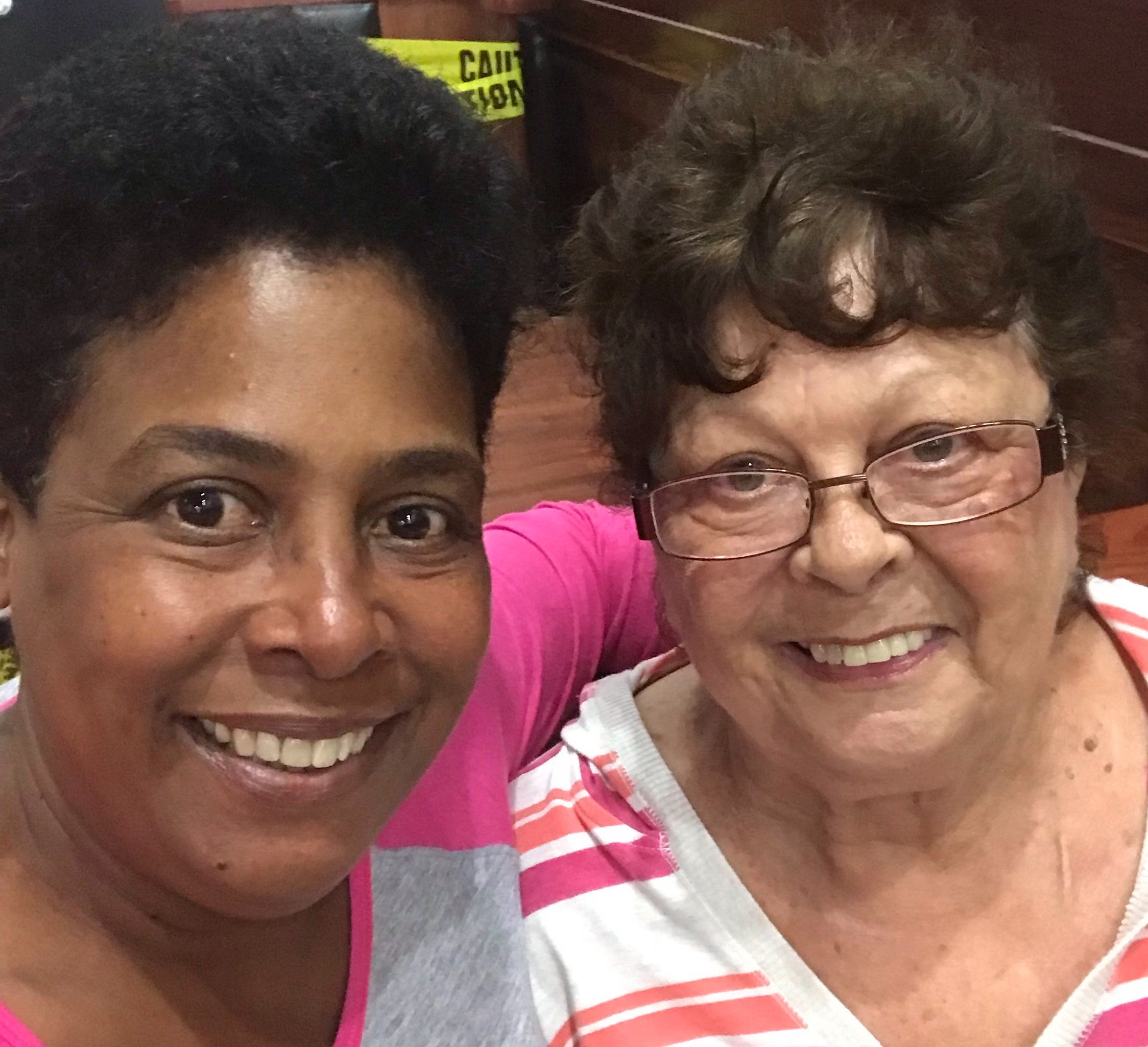
by Tina Spencer
From an up close and very personal experience, I know that breast cancer really sucks. Really. Sucks. Despite that, I am happy to share that my mom is a 3-time breast cancer survivor. You read that right, a 3-time survivor. Her first occurrence was in 2004 in which she had a lumpectomy.
In December 2006, the cancer returned to the same place in the exact same area and while it seemed that perhaps all of the cancer wasn’t removed the first time, it was actually a different “strain” or “type” of cancer.
In the fall of 2011, breast cancer was back and it was spreading and growing into the surrounding, healthy tissues. Adding to the stress, my sister and I needed to be checked for the BRCA2 gene; thankfully neither of us have it. My mom opted to have a double mastectomy and I believe that’s why she’s a 3-time survivor.
So what does breast cancer have to do with sustainability?
According to the American Public Health Association, breast cancer is the most prevalent cancer among women in the United States and other countries, making it a major public health concern. While breast cancer can be genetic, the environment has also been linked to breast cancer development. {Don’t forget, the environment is the where living things live—your home, your work, wherever you spend time} Recent studies suggest that environmental exposures, certain chemicals, diet, and social factors, may increase the risk of breast cancer. Exposure to chemicals in the air we breathe via air pollution and emissions, in the food and beverages we consume, and that come in contact with our skin influence one’s risk of breast cancer. A higher risk of breast cancer has been associated with nitrogen dioxide (NO2) and nitrogen oxides (NOx) levels, air pollution. Both of these are produced when fossil fuels are burned; whether gas in your car or coal for electricity.
While all of us are exposed to these pollutants, those that live in areas of higher pollution—near the coal-fired power plant, along heavily trafficked roads, etc. are exposed to higher levels and have higher risk. Unsurprisingly, the populations at greatest risk have less access to healthcare/health insurance, are lower-income, and/or people of color. Those factors often cause a delay in treatment, which decreases survival rates.
UNMC/Nebraska Medicine are committed to sustainability because of our mission to create a healthy future for all. From 2010-2018 we cumulatively reduced 182,880 MTCO2e, equivalent to emissions from almost 22,000 Nebraska homes for a year. In 2019 we installed Nebraska’s largest rooftop solar array, worked to reduce peak during the hot/humid summer months, and continue to work towards our Net Zero Building Emissions by 2030 goal. By reducing energy use we substantially reduce CO2, NO2, NOX, mercury, SO2, and other harmful pollutants associated with cancer and a variety of other maladies.
